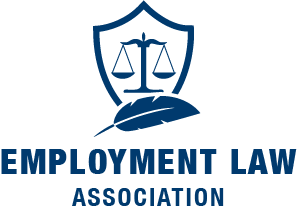EMPLOYMENT LAW TERMS

Discrimination
In terms of civil rights and employment laws, discrimination is when an individual or group is treated unfairly or given unequal treatment, based on certain characteristics. Some of the more common forms of civil rights and employment discrimination include:
– Age
– Ability / Disability
– Ethnicity
– Gender
– Gender Identity
– Marital status
– Nationality and/or country of origin
– Religious
– Sexual orientation
The Age Discrimination in Employment Act is specific federal legislation that prohibits unfair and discriminattory treatment in employment on the basis of age. It typically covers individuals that are 40 years of age or older.
Sexual Harassment
Sexual harassment is a form of discrimination. If an employee is subjected to inappropriate sexual behavior while at work, it is illegal and may be grounds for a lawsuit.
At-Will Employment
When an employee and an employer have an employment relationship in which there is no contractual agreement and either party may end the employment relationship at any time and for any or no reason at all without incurring any penalties, it is called at-will employment. The exception to being allowed to terminate an employee for any or no reason is that this is not allowed if it violates labor laws.
Back Pay
In an employment lawsuit, back pay is a type of damages award. It represents the amount of money an employee would have earned if the employee was not fired or dismissed, or denied a promotion for unlawful reasons.
Hostile Work Environment
The phrase hostile work environment is used when a work environment is highly charged with harassment or other unwanted (and unlawful) behavior. By law, employers are required to provide their employees with a safe work environment that is free from harassment. If a hostile work environment interferes with an employer’s ability to do their job, it is in violation of employment law. It does not matter who harasses an employee, it can be an individual or group of co-workers, managers, supervisors, bosses, owners, or subordinates, etc.- an employer is supposed to protect employees from harassment and discrimination while they are on the job.Wage and Hour
The federal government sets out a minimum wage that all employers must not pay their employees less than. As of 2019, 29 states and DC as require employers pay minimum wages above the federal minimum of $7.25 per hour. Employers are required to pay overtime wages when an employee exceeds working 40 hours in a one week period, as well as abide by other wage and hour laws such as, the number of break an employee is allowed to take and the length of time of these breaks, etc.Wrongful Termination
For an employee to be legally terminated, the employer must have proof that the employee was not doing their job. An employer may not fire an employee out of retaliation for an employee filing a legal complaint, or because protected characteristics such as race, gender, religion, pregnancy, disability, etc.